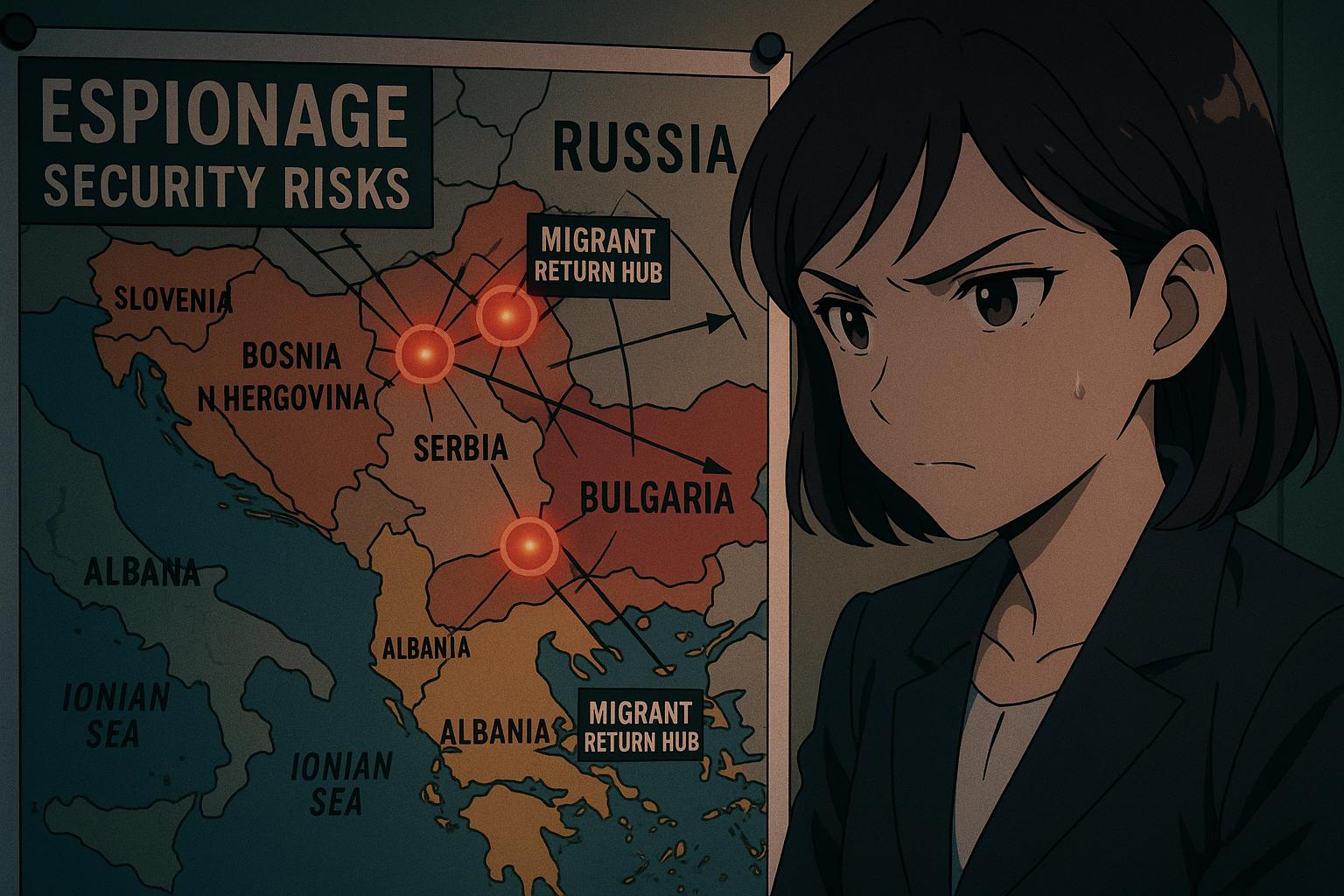The UK's Secret Intelligence Service, MI6, has issued a stark warning regarding Sir Keir Starmer's ambitious proposal to establish deportation "return hubs" for migrants in the Balkans. The intelligence agency's analysis indicates that this plan could open pathways for exploitation by Russia, which has been steadily increasing its influence in the region. The concerns stem from the proximity of these proposed hubs to areas within a Russian sphere of interest, raising alarms about the safety of both the migrants and broader national security.
The concept of return hubs involves relocating asylum seekers who have exhausted their appeals in the UK to designated sites abroad, particularly in the Balkans. Starmer, during a press conference outlining the Immigration White Paper, labelled these hubs as “a really important innovation”. The suggested locations include countries like Serbia, Kosovo, North Macedonia, and Bosnia-Herzegovina. However, the proposal has met with significant resistance from security officials who deem it "not sensible" against a rising backdrop of geopolitical tensions.
Sources within MI6 pointed out the precarious nature of the Balkans, warning that these regions could be used as tools by the Kremlin. Given the historical and ongoing connections between Serbia and Russia, the sentiment among security experts is clear: deploying a substantial processing site for immigration claims adjacent to a nation with strong Russian ties is fraught with risk. Serbia’s President Aleksandar Vucic has consistently demonstrated his alignment with Moscow, posing further concerns about how such a move could inadvertently facilitate Russian operations in the area.
The implications of such a plan extend beyond mere logistical challenges; they touch on broader geopolitical dynamics. Recent analysis indicates that Serbia has been bolstering its relationship with Russia, which includes hosting a Russian private military company in Belgrade. This deepening alliance raises questions about the extent to which Serbia may serve as a conduit for Kremlin influence within the Balkans, especially as regional stability is increasingly jeopardised by a resurgence of Russian assertiveness.
Moreover, the vulnerabilities of the Balkans are not limited to Russian espionage. Recent incidents involving Serbian police crackdowns on migrant smuggling have illustrated the precariousness of law enforcement in the region. Such crackdowns have merely shifted smuggling routes, exacerbating strains on other countries' border controls, notably Bosnia and Herzegovina, which has experienced a surge in migrant apprehensions and associated challenges. As the UK government engages in informal discussions with Balkan states to finalise deals for the proposed return hubs, the obstacles posed by potential legal issues are also under scrutiny. Experts have highlighted the contentious status of Kosovo, which is not universally recognised as independent and lacks accession to human rights treaties, complicating any agreements for deportation.
In light of these complexities, MI6's assessment appears to resonate with a broader narrative of caution regarding the potential repercussions of the UK's migrant return strategy. With growing recognition of how hostile states may manipulate migration for strategic advantages, the call for a thorough reevaluation of these proposals could not be more timely. The intersection of migration policy and international relations underscores the importance of safe, pragmatic solutions that do not inadvertently empower adversarial states in a volatile region.
As the UK anticipates formal discussions among Western Balkan leaders later this year, where illegal migration will be a central topic, the urgency for a balanced approach is evident. Both humanitarian and security dimensions must be factored into the equation, ensuring that any decisions made do not compromise the safety and integrity of vulnerable populations nor national interests.
Reference Map:
- Paragraph 1 – [1], [2]
- Paragraph 2 – [1], [5]
- Paragraph 3 – [2], [4]
- Paragraph 4 – [3], [6]
- Paragraph 5 – [1], [2]
Source: Noah Wire Services
